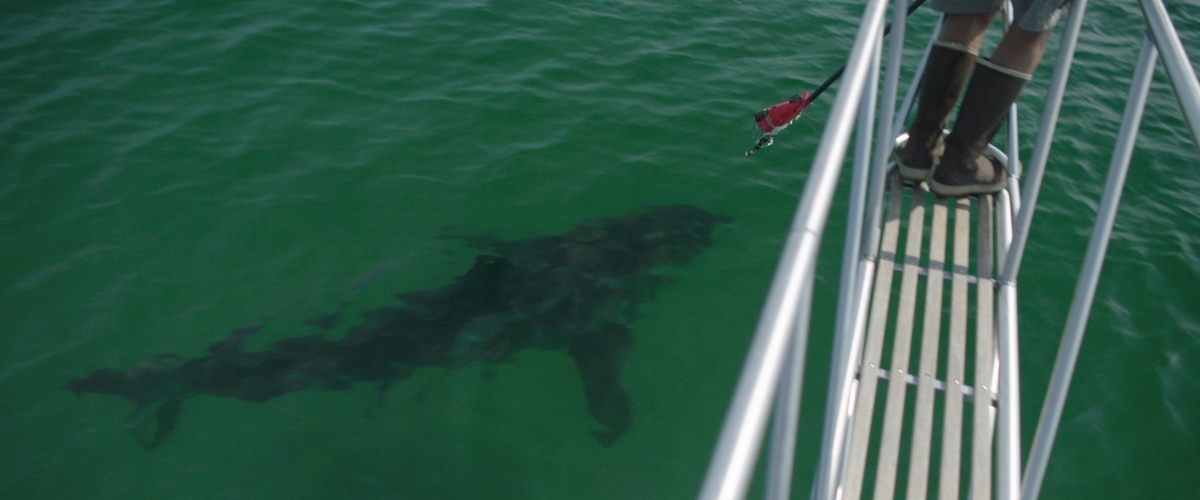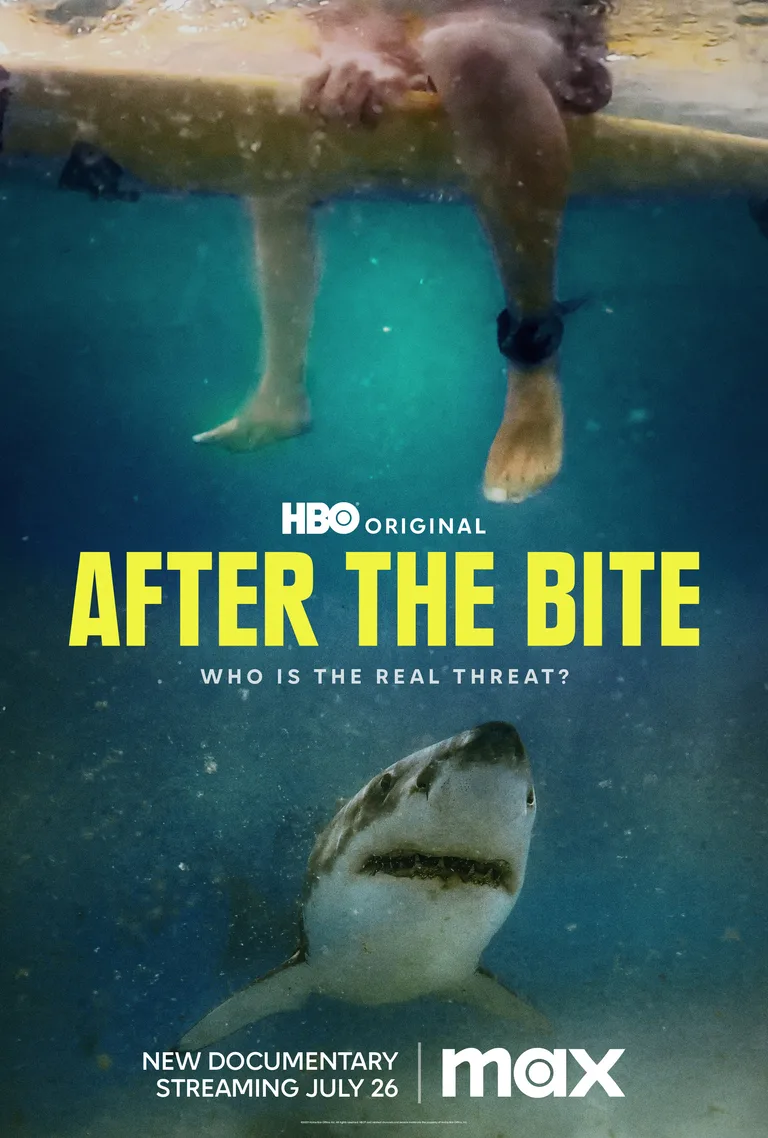We humans are pretty arrogant Earth tenants, aren't we? The amount of space we take up, the damage we readily inflict, the cohabitants we sideline—we're the planet's loudest renters, which makes us think we own the place, and that every other species should act accordingly. "After the Bite," an engrossing new documentary that only starts with one Cape Cod town's debate about what humans can do to protect themselves from a great white shark surge, brings such awareness to the surface. Director Ivy Meeropol ("Bully. Coward. Victim. The Story of Roy Cohn") weaves an impressive tapestry of conflicting perspectives—man and animal—that's far more entertaining and insightful than your average Shark Week fare.
While the themes within "After the Bite" are as lasting as our ticking time on this planet, it focuses them on a tragedy in 2018, when a young man named Arthur Medici was attacked and killed by a shark off a beach in Wellfleet, Massachusetts. The attack wasn't a fluke—great white sharks had been seen more often near the beaches in past years. But it inspired a wealth of various responses. Some people wanted to learn how to better live with them, like the scientists who tag sharks and can follow their movement. Others thought about where to place guilt: on bad infrastructure, on the ballooning seal population that mixes with human swimmers, and more.
Meeropol's film doesn't push the tensions in these head-butting perspectives or try to make much of a plot about them. But the documentary's observant nature is plenty fascinating, as it looks at the many beings who feel the immediacy of this problem and are participants in an ecosystem that doesn't prioritize a human's safety. Suzy, a head lifeguard, tells us about a nightmare she has about a shark attack; John, a father, and resident of Wellfleet, talks about how he wouldn't let his surfer daughter in the water after Arthur's death, and tells a town hall meeting that humans are not being protected. "After the Bite" is full of plenty of food for thought about an issue that it magnifies and treats with many distinct POVs.
It's not just through interviews, but with Meeropol's following-around footage, like when we're in Suzy's car as she drives to work or on a boat with a group of fishermen venting about how global warming has altered the fishing scene, for both sharks and their livelihood. We even get a seal's POV as a fisherman hawks chum into the blue; the camera is thrashed about, bumped into by leathery noses and whiskers. (Meeropol's film has an important stance—it works to treat animals as equals.) In one concise passage after another, "After the Bite" looks at different players in this conundrum, putting a microscope on this community that has been polarized by terror.
For all of the moments in which "After the Bite" works to offer more shark information than "Jaws," Meeropol and company do conjure their own special thrilling moment later on. A great white nemesis is finally shown close-up, nibbling on a large whale carcass. It's a huge shark, and it conjures equal awe and fear as it slithers past boats (and one freaked-out guy, Noah, who is in a tank and gets real up close). The captured moment is as natural as possible, but with Meeropol's work's added context, it is bizarre and jarring.
Meeropol's editing volleys between many different tones, but they enrich each other—it makes clear how this beach culture can create joy (as seen in a shark-themed burlesque in nearby Provincetown) just as much as fear, evident in a captured moment where Suzy and her crew think they see a fin in the water. "After the Bite" doesn't just capture a problem, but the life of the place that's concerned about it. Like the best documentaries, it's evident how the people interviewed in "After the Bite" have long had this issue on their minds, whether in conversation or their dreams. One of the most memorable tokens comes from surfer Dana, who runs the beach parking lot gate with no shoes on and jokes with drivers-by until he can partake in the shark-scattered waters. "Humankind must learn humility in the face of nature," he casually states. We then get to see him paddle away from the beach, ready to surf, without a manmade entitlement for his safety.
Now playing on Max.




















